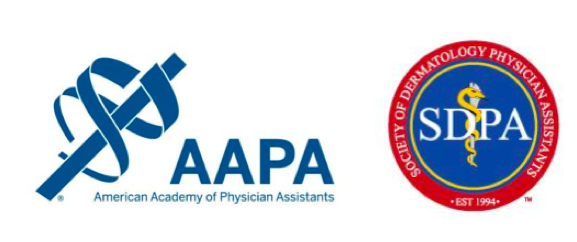Today the SDPA sent the following response to the AAD. Please help us disseminate this official response.
Dear Dr. Pariser:
In response to the American Academy of Dermatology’s (AAD) recent announcement of its new DermCare Team program, the Society of Dermatology Physician Assistants (SDPA) and the American Academy of Physician Assistants (AAPA) applaud AAD’s willingness to share resources with all team members, but we oppose the accompanying attestation requirement.
The AAD policy to which participants would be required to adhere, “Position Statement on The Practice of Dermatology: Protecting and Preserving Patient Safety and Quality Care,” if followed would set PAs and dermatology practices back decades in terms of the collaborative care they provide to dermatology patients.
The AAD’s parameters for collaboration are far more restrictive than the most constrained state PA practice acts. Requiring that dermatologists provide “direct, on-site supervision” of PAs hearkens back to practice laws and accreditation standards of the 1980s. You tie the hands of your most progressive AAD members by requiring them to adhere to this outmoded policy, if they want to give their PAs access to the excellent educational resources AAD offers. The policy effectively shuts the door on expanded patient access and any efficiencies of PAs and physicians collaborating to provide the best possible team-based care. The policy runs counter to current trends embracing team practice and creative use of emerging technologies to broaden access to effective, high-quality care. Furthermore, there is no evidence to show that having the PA and physician practicing in the same location increases the safety or quality of dermatology care.
As the Position Statement reads now, neither SDPA nor AAPA can support the AAD’s DermCare Team initiative. If AAD goes forward with its DermCare Team program and the attestation, we will actively discourage our members and their physician colleagues from signing on.
If AAD drops the attestation requirement or adopts a collaborative practice statement that supports the present and future model of physician-PA collaboration, we would be open to discussion on the DermCare Team initiative or other avenues to promote collaborative practice. As an example of a positive statement about collaboration, we refer you to a recent statement jointly endorsed by nephrologists and PAs, Renal Physicians and Physician Assistants: Excellence in Team-Based Medicine, A Joint Statement of the Renal Physicians Association and the American Academy of Physician Assistants, May 2014. The statement was prepared in collaboration with the American Academy of Nephrology Physician Assistants.
We look forward to working together to develop an accurate representation of the team model that both our organizations can support.
Sincerely,
John McGinnity, MS, PA-C, DFAAPA, President American Academy of PAs
Vicki Roberts, MPAS, PA-C, President, Society of Dermatology PAs

